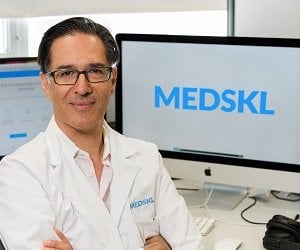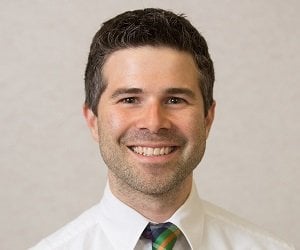
12 Tips to Prepare for the COMLEX
If you’re like most medical students, your “To-Do” list is probably never ending! Between hectic ... Read more
Written by: H. Jeff Nazar
Published on: September 21, 2017

If you’re like most medical students, your “To-Do” list is probably never ending! Between hectic ... Read more
Written by: H. Jeff Nazar
Published on: September 21, 2017

Updated September 9, 2021. The article was updated to correct minor grammatical errors and to ... Read more
Written by: BoardVitals
Published on: September 19, 2017

Read about steps 1 and 2 in Part 1 of this series here. Read about ... Read more
Written by: PracticeLink
Published on: September 7, 2017

Tell us about yourself. Why did you first decide to become a physician I am ... Read more
Written by: Gloria Onwuneme
Published on: September 6, 2017
Dr. Emma Stanton is a psychiatrist and Regional Chief Partnerships Officer at Beacon Health Options, ... Read more
Written by: Gloria Onwuneme
Published on: September 4, 2017

The Multiple Mini Interview, commonly abbreviated to “MMI”, is one of the most dreaded interview ... Read more
Written by: Behrouz Moemeni
Published on: August 30, 2017

By Brent Schnipke As I have spoken with physicians, residents, and other medical students about ... Read more
Written by: Brent Schnipke
Published on: August 28, 2017

You most likely believe the best time to start your medical job search is late ... Read more
Written by: Robert Felberg
Published on: August 24, 2017

Republished with permission from here. Summer It didn’t take long for the truth to come ... Read more
Written by: Amara Frumkin
Published on: August 23, 2017

I walked into my first rotation with a stethoscope and granola bar in my pocket ... Read more
Written by: Adelle
Published on: August 21, 2017

Do you know anyone who raves about their mentor? A mentor can offer you expertise ... Read more
Written by: AAMC Staff
Published on: August 10, 2017

The transition from high school to college is stressful for many students, and perhaps more ... Read more
Written by: Cassie Kosarek
Published on: August 8, 2017

Dr. Shane Quinonez is a Clinical Assistant Professor and the Associate Program Director of the ... Read more
Written by: Student Doctor Network
Published on: August 7, 2017

By Amy Rakowczyk, SDN Staff Writer One of the biggest challenges that arises during medical ... Read more
Written by: Amy Rakowczyk
Published on: August 3, 2017

Dear medical students: I’m sorry. You had just finished two years of didactic learning and ... Read more
Written by: Karen Tran-Harding
Published on: July 31, 2017

“So if you don’t mind me asking, why did you make the switch?” I get ... Read more
Written by: Karen Tran-Harding
Published on: July 27, 2017

Republished with permission from here. I spent one year working full-time as a pharmacy technician ... Read more
Written by: Sarayna Schock
Published on: July 26, 2017

Updated February 17, 2022. The article was updated to correct minor grammatical errors and formatting. ... Read more
Written by: Guideline Central
Published on: July 21, 2017

Updated September 2, 2021. The article was updated to correct minor grammatical errors and to ... Read more
Written by: Andrew Josuweit
Published on: July 17, 2017